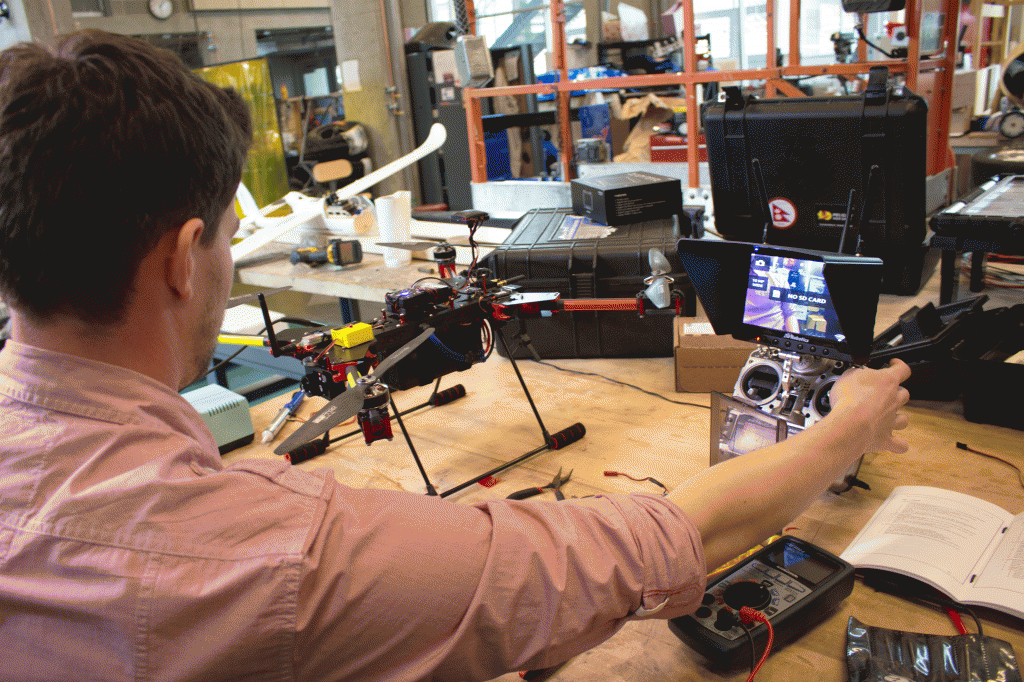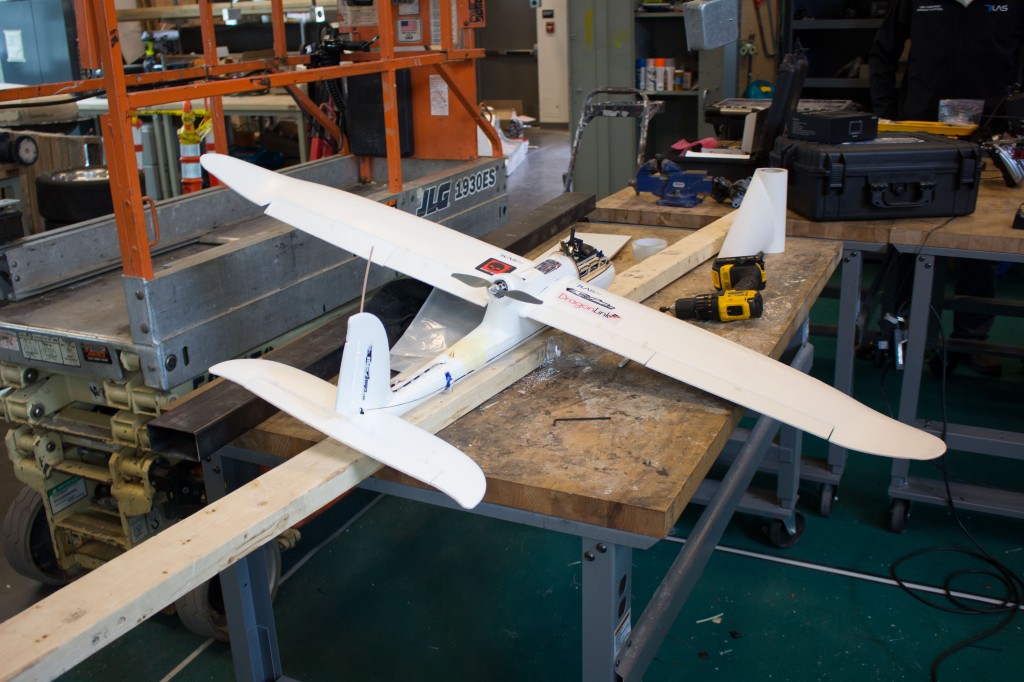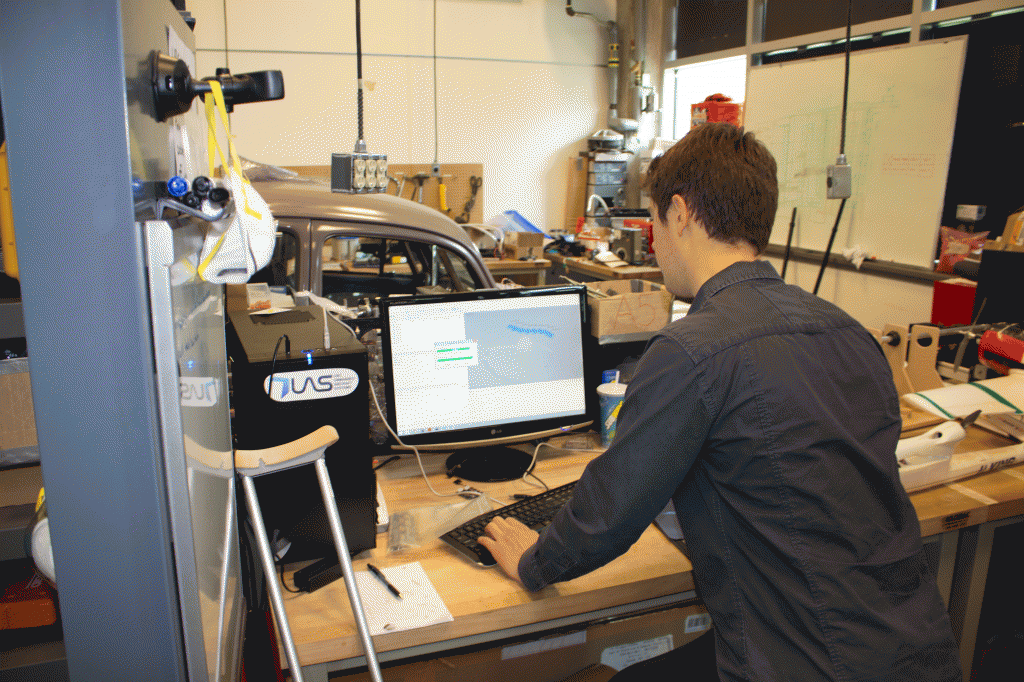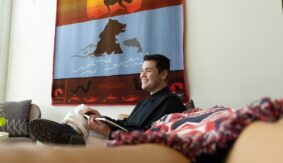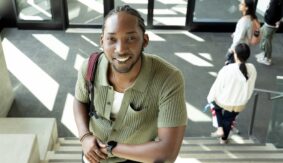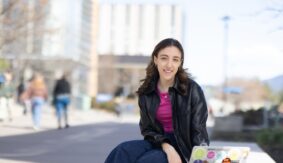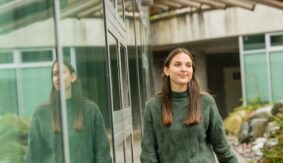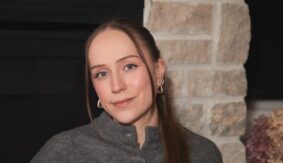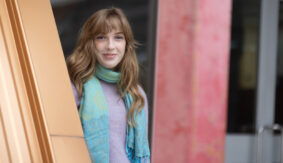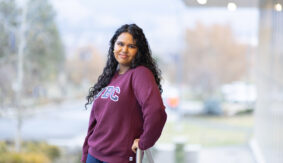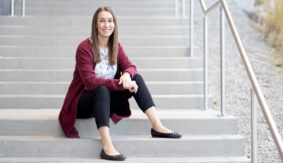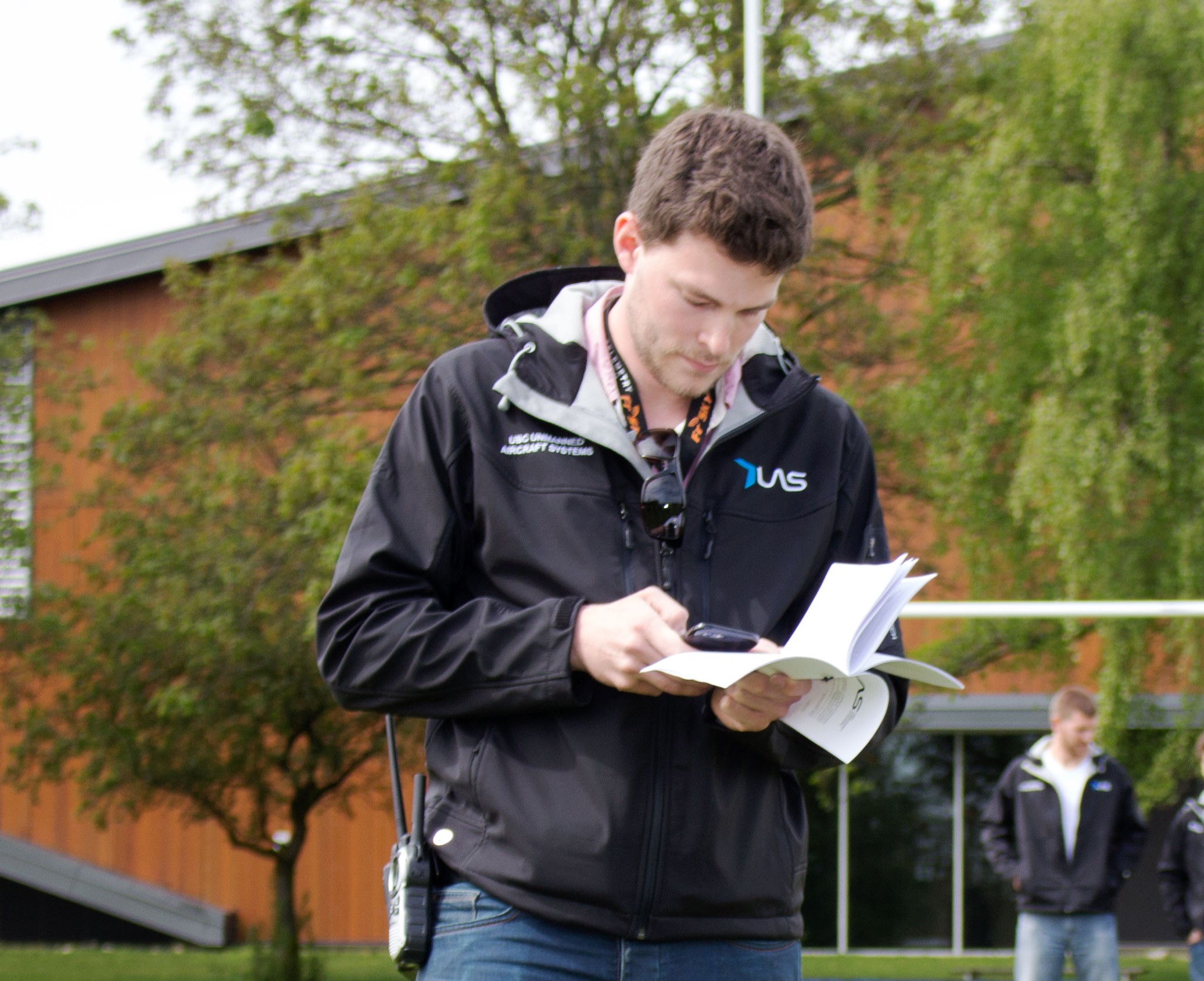
A communal interest
An interdisciplinary team of undergraduate students at the University of British Columbia are building and flying drones on the Vancouver campus. The UBC Unmanned Aircraft Systems (UBCUAS) team features students enrolled in a variety of programs, ranging from Engineering and Forestry, to Geography and Business. Together, they are changing the narrative on drones by demonstrating the positive impacts of unmanned aircraft.
(Chris Borchert troubleshooting a drone’s controls and camera.)
Soaring ambitions
The drones they build and fly have various applications. They can be used to assist in search and rescue operations, like locating a missing person in dangerous and inaccessible terrain, or they can be used to survey large disaster areas in order to coordinate relief efforts. They are competing in Quebec by responding to a hypothetical train derailment scenario where oil products have leaked into the natural environment. The team will fly drones overhead, surveying the damage to the landscape in real time, and inform disaster respondents where to concentrate their efforts.
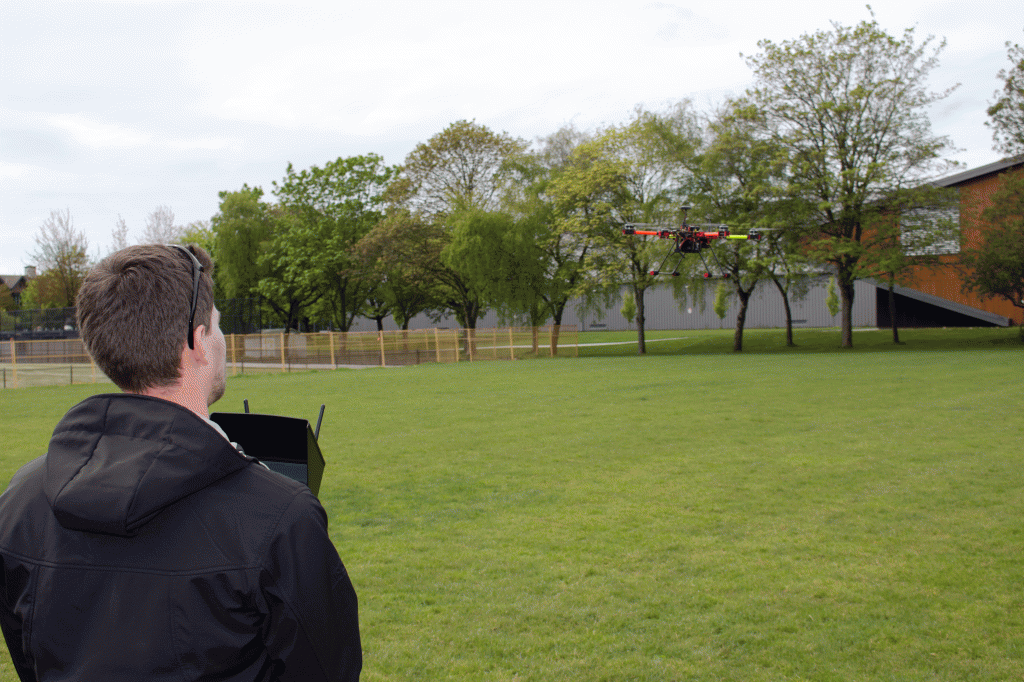
(Chris Borchert Flying the “Hummingbird” on UBC’s Vancouver Campus.)
“The idea is that we show up with the first responders, survey the area, and give a first look at the scene. Part of that is for insurance purposes and for agencies involved to determine the extent of the damage, to locate any potentially immobilized victims, and to provide information that prevents this sort of disaster from repeating itself.” — Chris Borchert
(The “Sparrow” awaits some repairs in the Engineering Design Centre.)
“We do this major search pattern for about twenty-five minutes and are able to correlate the GPS on-board to each of the pictures taken. Then, during ground processing for about forty-five minutes afterwards, we can take all those pictures and lay them on top of the map and stitch them together to create one massive image, one huge ortho-photo of the entire area, which we can actually zoom in on to locate victims and targets.” — Alexander Harmsen
(Alexander Harmsen uses software to transform the images taken from the drones into fully featured digital surface models.)
A growing community
The team provides undergraduate students with the opportunity to explore their passion for unmanned aviation while developing lasting relationships with government and industry partners. Team representatives emphasize that they are continuously expanding and improving their methods and technology. Any interested prospective or current students are encouraged to contact the team for more information.
